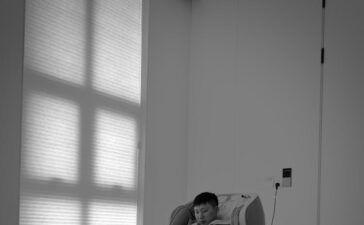The following advice is provided to assist you in preparing for your interview at the Australian Embassy located in your native country. It is important that you go over these tips and do your best to implement them as they will definitely be helpful.
1. English- Be prepared for the interview to be done in English, not in the language that you are most fluent in speaking. Before the interview, it is recommended that you engage in conversation with a person who is a natural speaker of the language especially if you are attempting to obtain a global talent visa subclass 858. If you are travelling to Australia for the sole purpose of engaging in intense English study, you should be prepared to discuss how your newly acquired language skills will benefit you when you return to your country of origin.

2. Represent Your Own Opinion- At your interview, you should not bring your parents or any other family members with you. You, and not your family, are the target of the consular officer’s interview. If you are unable to speak out on your behalf, you will give off a poor image.
3. Be familiar with the programme and understand how it fits into your long-term career goals- If you are not able to express the reasons why you will enrol in a particular programme in Australia, you may not be successful in persuading the consular official that you are truly going to study, instead of illegally overstaying your visa. You must also be capable of explaining how your time spent studying in Australia will connect to your professional future in the nation where you were born.
4. Be Concise- As a result of the high volume of applications that are obtained, all officials are under a significant amount of time pressure to complete an interview promptly and effectively. They have to base the majority of their choice on the impressions that they get within the first couple of minutes of the interview. As a consequence of this, the first thing you say and the first impression you make are extremely important to your overall success. When responding to the officer’s enquiries, make sure that you are succinct and get right to the point.
5. Supplemental Documentation- The consular officer should be able to tell, at a glance, what kinds of written papers you are providing and what those documents indicate. Explanations that are too long to read in one sitting cannot be efficiently appraised. Keep in mind that, if you’re lucky, you will only have two to three minutes of interview time.

6. Employment- Your primary objective in coming to Australia should be to pursue educational opportunities, not the prospect of finding a job either before or after you graduate. While it is true that a significant number of students hold jobs off campus while they are pursuing their degrees in Australia, it is important to note that these jobs are really a means to an end—the completion of their education. You are required to be able to define in detail the strategy you have to complete your programme and then return home.
7. Dependents Staying at Home- If you are leaving your nation and your husband and children are going to stay there, you need to have a plan for how they are going to take care of themselves while you are gone. Managing this aspect of your finances might be especially challenging if you are the sole breadwinner for your family.






